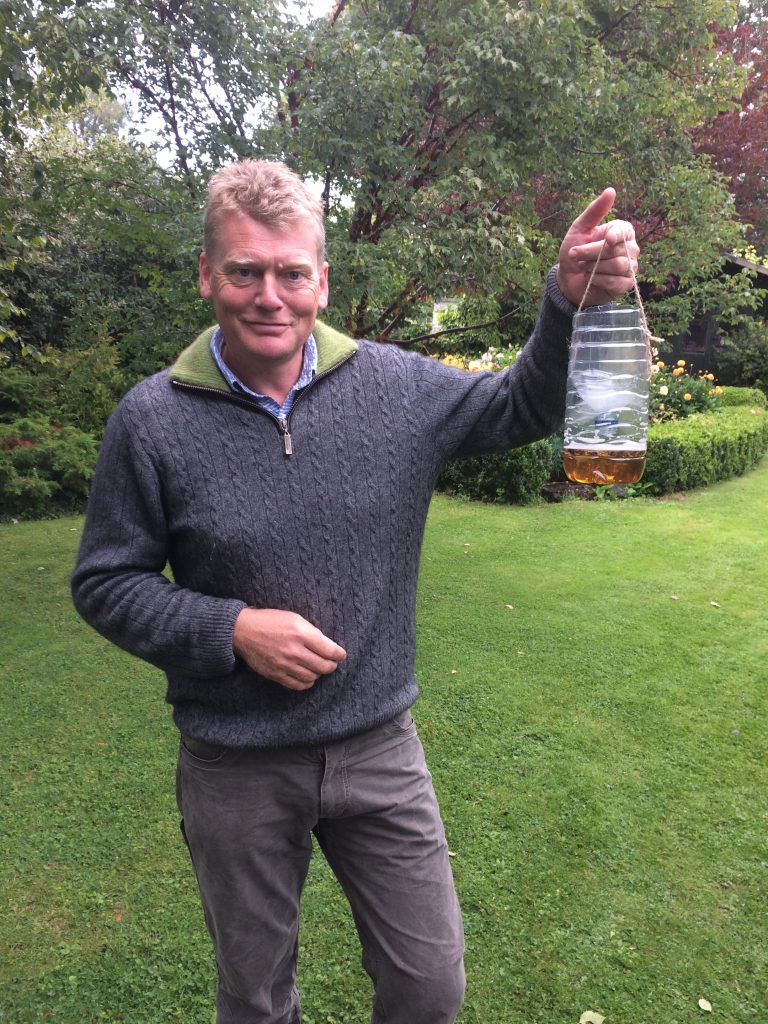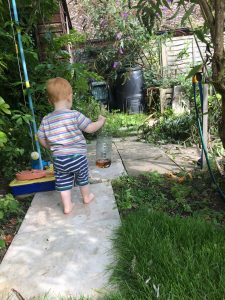
Put out your traps for 7 days, anytime between Bank Holiday weekend (26th August) and 10th Sept!
What late summer bank holiday wouldn’t be complete without wasps? We may hate them but they’re useful predators, controlling garden pests and pollinating flowers. We know bees are struggling but what about wasps? We are using beer and the power of the public to find out more about these important but much maligned insects.
The Big Wasp Survey is the first of its kind in the UK. We are asking members of the public to recycle an old plastic bottle and use a little beer to make a wasp trap for their back garden. After a week, once the wasps are trapped, you simply send them back to the team for identification and counting. Very little is known about the abundance and diversity of wasps in the UK and it’s hoped this survey will give scientists valuable information.

The project, in partnership with the BBC’s Countryfile programme, is sponsored by the Royal Entomological Society. It’s hoped the data will show which species of wasps live where in the UK. The black and yellow wasps that bother us at picnics are the social wasps and there are a number of different species that live in the UK. We would like to find out more about where they live and how common they are; and to do that we need the public’s help.
Beer trapping is a common technique used by beekeepers to lure wasps away from their hives. It does result in drowning the wasps that are attracted to the beer. While we are asking people to kill some wasps, which is a bit unusual for a project aimed at conserving them, it really is the only way that we can identify the wasp species around and be sure that the information we get from the project is worthwhile. At this time of the year, wasp colonies are at the end of their life and the wasps we catch are old workers, who will die soon anyway. This means our methods won’t have any significant effects on the overall populations.
What are you waiting for? Upcycle your water bottle, share a beer (or glass of orange juice) with it, and hang it in your garden!
